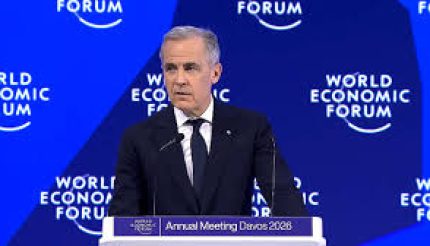Five Key Principles for Successful Coaching as a Leader
I was coaching a client last week on how to improve team performance and referred to the Myles Downey concept of Enabling Leadership where he explains that a successful leader focusses on Leadership, Management and Coaching and shows that time spent on all three of these activities is required to ensure the team understand why they do what they do, what they need to do and how they do what is required successfully. This last part is the coaching. I have come up with five key principles for successful coaching of a team member and would like to share these with you as I believe that this is the area of leadership that is often neglected.
1. Build Trust and Rapport: Successful coaching begins with establishing a foundation of trust and rapport between the leader and their team members. You must create an open and non-judgmental environment where individuals feel comfortable expressing their thoughts, concerns, and aspirations. You should actively listen to understand their perspectives, and demonstrate empathy to foster a strong connection. Trust is the foundation of effective coaching, as it lays the groundwork for open communication and collaboration in the future.
2. Set Clear Goals and Expectations: As a leader-coach, it’s crucial to set clear and specific goals for both individual team members and the team as a whole. You should clearly articulate expectations, ensuring that everyone understands their roles and responsibilities. Work collaboratively to establish SMART (Specific, Measurable, Achievable, Relevant, Time-bound) goals that align with both individual development and organisational objectives. This clarity provides a roadmap for progress and helps team members stay focused on their priorities. These should help clarify what needs to be done and what the success criteria are.
3. Provide Constructive Feedback: Effective coaching involves offering timely and constructive feedback to guide individuals towards improvement. Instead of focusing solely on mistakes, highlight strengths and areas for growth. Frame feedback in a positive and developmental manner, emphasising the impact on performance and linking it to the achievement of goals. You should foster a culture where feedback is a two-way street, encouraging team members to share their perspectives and insights as well. Marshall Goldsmith uses the phrase feedforward to help you to realise that the focus should be on how they get to perform better rather than just reviewing the past.
4. Encourage Continuous Learning: A leader-coach promotes a culture of continuous learning and development within the team. You should encourage team members to seek out opportunities for skill enhancement and professional growth. You can provide access to resources, training programs, and mentorship to support their learning journeys and demonstrate a commitment to your own ongoing development, reinforcing the importance of a growth mindset within the organization. Sharing stories of what you have learnt and sharing ideas for them to learn from also help with this.
5. Celebrate Achievements and Successes: Recognise and celebrate both individual and collective achievements to reinforce positive behaviour and motivate continued success. You should acknowledge milestones, no matter how small, and express genuine appreciation for the efforts put forth. Celebrating successes fosters a positive work environment and boosts team morale. It also reinforces the connection between individual contributions and the overall success of the team. Successful leaders actively look for opportunities to thank their team.
In conclusion, effective coaching is a dynamic and ongoing part of the leadership process that not only enhances individual performance but also contributes to the overall success of the team and the organisation.
I hope that you have found this an interesting and enlightening read. Please contact me on 07511 969690 or e-mail rogerpemberton@actioncoach.com if this raises further questions for you.







I loved as much as you will receive carried out right here. The sketch is tasteful, your authored subject matter stylish. Nonetheless, you command get an edginess that you’ll be delivering the following. I’ll unquestionably come further formerly again as it’s exactly the same nearly very often inside case you shield this hike.
Hello, I think that I saw you visited my weblog, so I came to return the favor. I’m trying to find things to improve my web site! I suppose it’s okay to use some of your ideas!!
Usually I do not read article on blogs, however, I would like to say that this write-up very compelled me to take a look at and do it! Your writing style has been amazed me. Thank you, very nice article.
you are truly a just right webmaster. The site loading speed is incredible. It kind of feels that you’re doing any distinctive trick. In addition, The contents are masterwork. you have done a great activity in this matter!
Have any favorite blog posts or writers? Share them with us in the comments!
يمكن للعملاء الاعتماد على الخبرة الفنية لمصنع إيليت بايب Elite Pipeودعم العملاء المخصص لمساعدتهم في اختيار التركيبات الأنسب لاحتياجاتهم الخاصة.
http://adserver.gadu-gadu.pl/click.asp?adid=2236;url=http://karlmarc.com/
child porn
Its like you read my mind! You appear to know so much about this, like you wrote the book in it or something. I think that you can do with a few pics to drive the message home a little bit, but instead of that, this is excellent blog. A fantastic read. I’ll certainly be back.
I loved as much as you will receive carried out right here. The sketch is attractive, your authored material stylish. nonetheless, you command get got an impatience over that you wish be delivering the following. unwell unquestionably come more formerly again since exactly the same nearly a lot often inside case you shield this hike.
I loved as much as you’ll receive carried out right here. The sketch is attractive, your authored material stylish. nonetheless, you command get bought an nervousness over that you wish be delivering the following. unwell unquestionably come more formerly again as exactly the same nearly a lot often inside case you shield this hike.
Hey there, You have done a fantastic job. I will certainly digg it and personally recommend to my friends. I’m confident they’ll be benefited from this site.
Wonderful web site. Lots of useful info here. I’m sending it to a few friends ans additionally sharing in delicious. And obviously, thanks to your effort!
hello!,I really like your writing so a lot! share we keep up a correspondence extra approximately your post on AOL? I need an expert in this house to unravel my problem. May be that is you! Taking a look ahead to see you.
Fantastic beat ! I would like to apprentice while you amend your web site, how could i subscribe for a blog site? The account helped me a acceptable deal. I had been a little bit acquainted of this your broadcast offered bright clear concept
I do trust all the ideas you’ve presented in your post. They are really convincing and will definitely work. Nonetheless, the posts are too short for newbies. May just you please lengthen them a bit from next time? Thank you for the post.
Hi, Neat post. There is a problem along with your website in internet explorer, would test this텶E still is the market chief and a good section of other folks will pass over your magnificent writing due to this problem.
Thanks, I have recently been looking for info about this subject for a while and yours is the greatest I have discovered so far. However, what in regards to the bottom line? Are you certain in regards to the supply?
You have a way of explaining complex topics in a straightforward and easy to understand manner Your posts are always a pleasure to read
I love how this blog celebrates diversity and inclusivity It’s a reminder that we are all unique and should embrace our differences
Your blog has helped me become a more positive and mindful person I am grateful for the transformative effect your words have had on me
Your blog always puts a smile on my face and makes me feel better about the world Thank you for being a source of light and positivity
Drop a link to your favorite blog post of yours in the comments below, I’d love to read more.
Share your favorite blog post in the comments below!
Your posts always speak to me on a personal level and I believe that is a testament to your authenticity and genuine nature